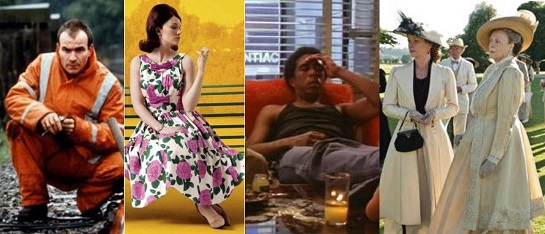|
|
|
|
Representing social classes in films on television and in cinema in English-speaking countries 10-11 October 2013 University of Rennes 2 Building L (bâtiment L): lecture theatre L3 (amphi L3) and room L141 (see "Maps" for further detail) Please note that registrations will be closed after 30 September 2013. Should you wish to register after this deadline, please contact David Haigron (david.haigron@uhb.fr). Call for papers On becoming Prime Minister in 1990, John Major promised to build a “genuinely classless society”. This aspiration sounds all the more daunting and surprising since the British have always appeared so obsessed with class. The notion of social class is now defined not only by someone’s occupation and the expression of their social status in language for instance, but also by their lifestyle, their social connections and their habits of cultural consumption (Bourdieu’s notion of habitus). The recent advent of David Cameron and Nick Clegg at the head of the government has been described as the “return of the toffs”, as both leaders hail from upper class families and have attended prestigious public schools and universities. Conversely, journalists and sociologists have documented the emergence of a new social category called the “chavs”, loud, aggressive working class youth. Unsurprisingly, both television and cinema films bear witness to this enduring fascination for class distinctions: from the lasting popular success of television series such as Upstairs, Downstairs (LWT, 1971-1975, updated in 2010 by the BBC)or the multi-award-winning Downton Abbey (ITV, 2010) to the character of Vicky Pollard in Little Britain (BBC, 2003-06), from the nostalgic indulgence of heritage films to the scathing criticisms of films following Ken Loach’s social realism, films have shaped and challenged stereotypes that articulate the ideological discourse on class. The history of the United States has been geared towards a classless society that is in stark contrast to the British class system. The American dream holds the promise of an open society where people have the same opportunity to climb the social ladder. As a tremendous dream machine that has also permitted spectacular social achievements, Hollywood nourishes and sustains the myth of an open society while eschewing any realistic representation of working class living conditions for example. Images of the middle class have prevailed along with racial and political discourses that contribute to marginalizing other classes – be they the ruling dynasties or the underclass. Indeed, cinema and television dramas more often than not mirror the mainstream ideology by extolling the virtues of the middle class, their social aspirations and their conservative values. However, archetypal figures of success have also been parodied or subverted in films produced in times of economic crises or by minority filmmakers. The aim of the conference is to explore representations of social classes in fiction and non-fiction cinema and television films made in English-speaking countries. Our purpose is to study how films document a social reality that in return seeps into their narrative, how they contribute to building a collective and stereotypical representation of social groups, or how they question and undermine these representations. Possible topics include, but are not limited to, the following:
|



